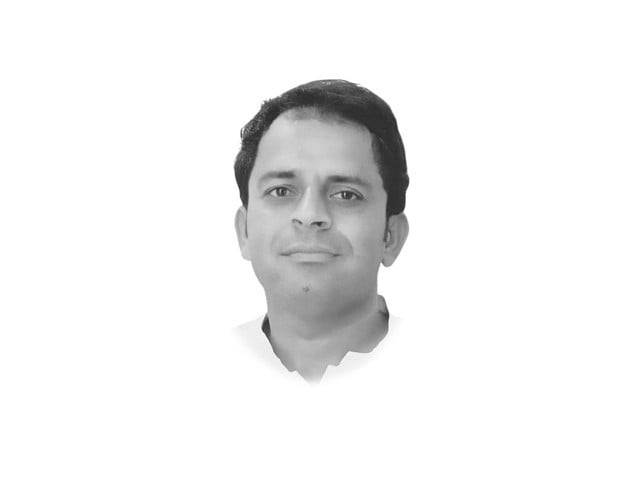The parallel worlds
The disharmony, however, lately endangers the strongholds of the power.

For some theorists, our world might be part of a larger multiverse, with parallel universes or realities that could exist in parallel dimensions or be separated from us by energy barriers. While still a theory, an analogous reality with two identical manifestations is both implicitly experienced and explicitly practised in our part of the world. Much like a purported parallel universe that supposedly dictates and reflects our world, the two realms of our society with blurred boundaries operate in inverse fashion: the world of the powerful sustains itself through eating on that of the wretched. Like an inverted shadow, the rulers' world cast a reversed practical experience upon the ruled. That is to say, if, in quantum mechanics, an invisible world dictates the terms of the world of which we are a part, then the parallel world of the powerful in Pakistan is understandably lording over the fate of the people.
For over three quarters of a century, the Pakistan of the powerful has created through policies and practices a gulf in the societal fabric of the country. In doing so, they have created a world of their own, the world of one per cent featuring the deep state, dynastic despots, bureaucracy, clergy, media, feudal and tribal warlords, and their facilitators and intermediaries - powerful and resourceful enough to control the wretched world of the remaining 99 per cent. The relentless pursuit of practical polarity has set the worlds apart - in almost a diametric opposition - leaving laws, moralities and practices, as well as life itself, to function with little, if any, harmony.
The disharmony, however, lately endangers the strongholds of the power. Unlike the invisible universe's indifference to the retrograde harmonic balance with the visible world, the parallel world of the powerful in Pakistan embraces practical disparity with the lesser world but defies theoretical incongruity. That is, the practical dichotomy between the world of the powerful and that of the people is not as much of an issue for the former as the voicing of the same by the lesser and larger world.
You might rightly wonder: why does the powerful world, despite dominating the parallel realm of the people, vie for harmonic recognition from the lesser world? The answer lies in the fact that, unlike the just natural laws governing a supposed parent universe (of which our perceptible world is a practical shadow), the visible world of the powerful in Pakistan functions with an inherent opacity - one that is underpinned by lies and manipulation. It is this veiled deception whose revelation Pakistan of power detests.
Now that the two have become almost irreconcilable, the world of power is vying to impose a theoretical synchronicity for its sustainability. By so doing, the architects of the powerful world wish to mask their deceptions and sustain their dubious stakes. Should it fail to bridge the divide, it will jeopardise itself, its estate in its improvised state - something it will not easily relinquish. Therefore, it lately tends to repaint the rapidly decolouring cloak with refurbished narratives in otherwise skeptical hearts and minds of the lesser world.
How does the Pakistan of power want the people's words and thoughts to sound? The abject poverty and rampant injustice of the public are merely the inverse reflections of prosperity and justice in powerful Pakistan - hence, they do not need to be voiced. People's struggle suggests their weariness with a life of forced prosperity. Lawlessness, poverty and growing insecurity ignite hope for people, including the hope for financial stability and order, as a hopeless life is not truly a life. Is it? People's starvation is a voluntary practice for better health. The media's rebuttal of truth and bureaucracy's pliant services serves the truth and the cause of power and, hence, is inarguable. The judiciary altruistically dispenses justice, and the clergy cement dis(harmony).
However, desperate efforts to sustain the Pakistan of the powerful at the cost of the people - by masking the divide through the PECA Act, the 26th Amendment, and selective judicial reshuffling, among others - reveal the divide between the two worlds more than they conceal it. Don't they?















COMMENTS
Comments are moderated and generally will be posted if they are on-topic and not abusive.
For more information, please see our Comments FAQ